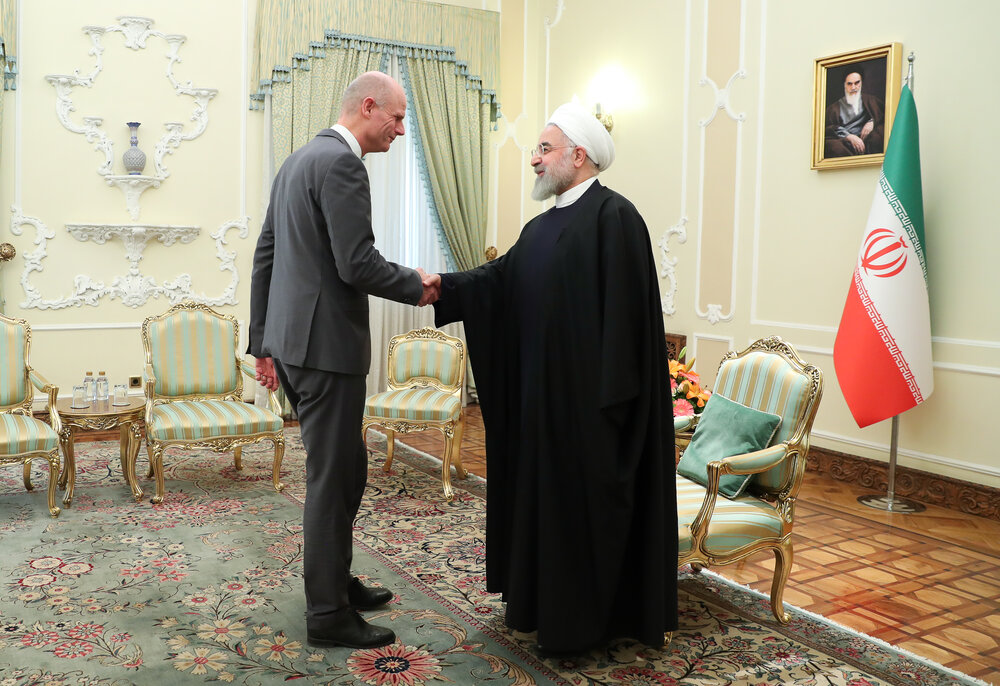Iran has not closed path of dialogue with EU, Rouhani says

TEHRAN – President Hassan Rouhani said on Saturday that Iran has not closed the path of dialogue with the European Union on the 2015 nuclear deal, known as the JCPOA.
During a meeting with Dutch Foreign Minister Stef Blok in Tehran, Rouhani said that all must make efforts to preserve the JCPOA.
In May 2015 the U.S. unilaterally and illegally abrogated the JCPOA and slapped the harshest ever sanctions against Iran. Following the sanctions, European companies also cut their cooperation with Iran, a move that has incensed Iran.
“We believe the nuclear deal was beneficial to the region and the world and the United States’ action was harmful to all, even the people of the United States. Unfortunately, during the past 21 months since the United States’ withdrawal from the JCPOA, the European Union could not take an effective step in line with implementing its commitments,” Rouhani complained.
For his part, Blok said it is essential to keep the JCPOA alive as an international agreement and the Netherlands will continue efforts in this respect.
“For this purpose, we should continue dialogue and dialogue can be a solution to problems and differences,” the chief diplomat remarked.
He added, “We have told the United States privately and publicly that withdrawal from the JCPOA was not the right thing to do.”
‘Region will be secure if U.S. stops interference’
Rouhani also said that the region will be secure if the U.S. stops interference and taking terrorist actions.
“The principle of our policy is that security in the region must be provided by the regional countries. We do not consider the presence of foreign forces in the Persian Gulf region useful for the security in the region,” he said.
‘Iran keen to have warm ties with EU’
Rouhani also said that Tehran is interested to develop economic and political ties with the Netherlands.
“We are interested in the expansion of political and economic ties with Holland.”
Rouhani also said Iran’s foreign policy is based on “constructive interaction with countries and like to have a warmer tie with the European Union”.
In late November 2019, Belgium, Denmark, Finland, the Netherlands, Norway, and Sweden issued a joint statement, announcing becoming shareholders of the Instrument in Support of Trade Exchanges (INSTEX).
“In light of the continuous European support for the agreement and the ongoing efforts to implement the economic part of it and to facilitate legitimate trade between Europe and Iran, we are now in the process of becoming shareholders of the Instrument in Support of Trade Exchanges (INSTEX) subject to completion of national procedures. INSTEX was established by France, Germany and the United Kingdom in January 2019,” read the statement, published by the Foreign Ministry of Finland.
Iran has likened INSTEX to a beautiful car which has no gasoline.
NA/PA

Leave a Comment